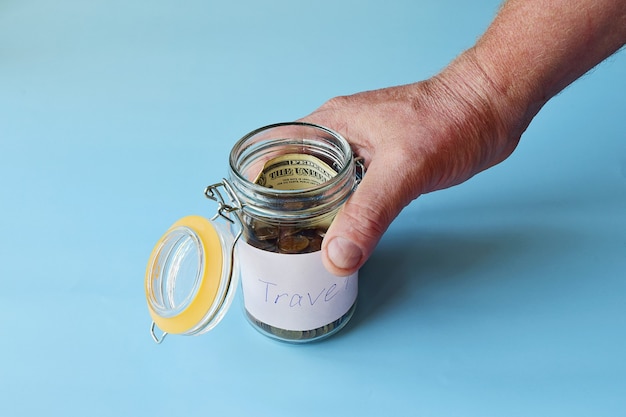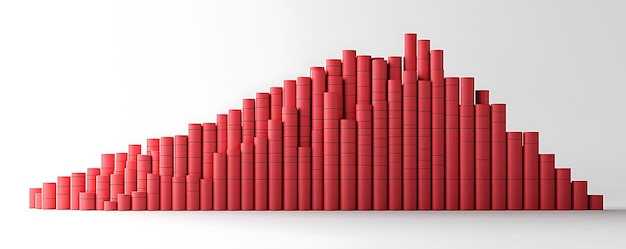Are Money Market Accounts Safe? Yields, Risks & Inflation Analyzed

Money market accounts can be a safe haven for cash, offering competitive yields with minimal risk, but their effectiveness as a hedge against inflation requires careful consideration of current rates and economic conditions.
Are you looking for a safe place to park your cash? Money market accounts are often touted as a low-risk option, but with fluctuating yields and the ever-present threat of inflation, it’s crucial to understand if they truly live up to their “safe haven” reputation in today’s financial landscape.
Understanding Money Market Accounts: A Primer
Money market accounts (MMAs) are a type of savings account offered by banks and credit unions. They typically offer higher interest rates than traditional savings accounts, while still providing easy access to your funds.
Key Features of Money Market Accounts
- Higher Yields: MMAs generally offer more competitive interest rates compared to regular savings accounts.
- FDIC Insurance: Deposits are usually insured by the Federal Deposit Insurance Corporation (FDIC) up to $250,000 per depositor, per insured bank.
- Liquidity: Funds are easily accessible, typically through checks, online transfers, or ATM withdrawals.
However, it’s important to note that MMAs may have certain restrictions, such as minimum balance requirements and limitations on the number of monthly transactions.
In essence, money market accounts provide a blend of accessibility and potentially higher returns, making them an attractive option for those seeking a secure place to store their funds while still earning interest.

Current Yields on Money Market Accounts: Benchmarking
To determine if money market accounts are truly a safe haven, it’s essential to analyze the current yields they offer. These yields can vary depending on several factors.
Factors Influencing MMA Yields
- Federal Funds Rate: The Federal Reserve’s monetary policy decisions significantly impact MMA yields. When the Fed raises interest rates, MMA yields tend to follow suit.
- Competition Among Banks: Banks and credit unions compete for deposits, which can influence the interest rates they offer on MMAs.
- Economic Conditions: Overall economic conditions, such as inflation and economic growth, can also affect MMA yields.
Comparing current MMA yields with those of other low-risk investments, such as high-yield savings accounts and certificates of deposit (CDs), can provide valuable insights. Online resources and financial institutions’ websites offer information on current rates, allowing you to benchmark and make informed decisions.
By understanding the factors influencing MMA yields and comparing them with other options, you can better assess their competitiveness in the current market.
The Impact of Inflation on Money Market Accounts
Inflation is a critical factor to consider when evaluating the effectiveness of money market accounts as a safe haven. Inflation erodes the purchasing power of money over time, meaning that the same amount of money will buy fewer goods and services in the future.
If the yield on a money market account is lower than the inflation rate, your money is effectively losing value, even though it’s earning interest. This highlights the importance of considering the “real rate of return,” which is the nominal interest rate minus the inflation rate.

For example, if the MMA yield is 2% and the inflation rate is 3%, the real rate of return is -1%, indicating that your money is losing value. Therefore, it is essential to compare the MMA yield with the current inflation rate to determine if it is truly a safe haven for your funds.
Ultimately, understanding the relationship between MMA yields and inflation is crucial for preserving your purchasing power and protecting your savings.
Assessing the Safety of Money Market Accounts: Risks and Limitations
While money market accounts are generally considered safe, it’s essential to understand their potential risks and limitations. One key aspect is FDIC insurance, which protects deposits up to $250,000 per depositor, per insured bank. However, this coverage limit should be considered, especially for those with larger sums of money.
Considerations Regarding MMA Safety
- Inflation Risk: As discussed earlier, inflation can erode the real rate of return if MMA yields don’t keep pace.
- Interest Rate Risk: MMA yields can fluctuate with changes in prevailing interest rates.
- Opportunity Cost: Investing in MMAs may mean forgoing the potential for higher returns from riskier investments, such as stocks or bonds.
Furthermore, it’s important to note that some money market accounts may have restrictions on the number of monthly transactions, which can impact liquidity. Evaluating these potential risks and limitations can help you make an informed decision about whether a money market account is the right choice for your financial goals.
In summary, while MMAs offer safety and liquidity, understanding their risks and trade-offs is crucial for responsible financial planning.
Alternatives to Money Market Accounts: Exploring Other Options
When considering where to park your cash, it’s prudent to explore alternatives to money market accounts that may offer different risk-reward profiles. High-yield savings accounts are another option that often provides competitive interest rates with similar liquidity.
Options to Consider
- Certificates of Deposit (CDs): These offer fixed interest rates for a specific term. They may offer higher yields than MMAs, but your money is locked in for the duration of the term.
- Treasury Bills: These are short-term debt securities issued by the U.S. government, offering a low-risk alternative to MMAs.
- Short-Term Bond Funds: These funds invest in short-term bonds, potentially offering higher returns than MMAs, but with slightly more risk.
Each has its own advantages and disadvantages in terms of risk, return, and liquidity. Ultimately, the best choice depends on individual circumstances, financial goals, and risk tolerance.
Therefore, taking a comprehensive approach and weighing the pros and cons of each can lead to a more informed decision that aligns with your financial objectives.
Making the Right Choice: Is a Money Market Account for You?
Deciding whether a money market account is the right choice for you requires careful consideration of your individual financial circumstances, goals, and risk tolerance. If you prioritize safety, liquidity, and FDIC insurance, an MMA may be an appropriate option.
Conversely, if you’re willing to take on more risk for the potential of higher returns, other investment options may be more suitable. Here are some key factors to consider:
- Your Risk Tolerance: How comfortable are you with the possibility of losing money?
- Your Time Horizon: How long do you plan to keep your money invested?
- Your Financial Goals: Are you saving for a short-term goal, such as a down payment on a house, or a longer-term goal, such as retirement?
Considering these factors, you can make an informed decision about whether a money market account aligns with your overall financial plan.
In conclusion, by assessing your needs and preferences, you can determine if the blend of safety, liquidity, and yield offered by MMAs is the right fit for your situation.
| Key Point | Brief Description |
|---|---|
| 🛡️ Safety | FDIC insured up to $250,000 per depositor. |
| 💸 Yields | Competitive interest rates compared to savings accounts. |
| 🌊 Liquidity | Easy access to funds via check, transfer, or ATM. |
| 🔥 Inflation | Evaluate if yields outpace inflation to maintain purchasing power. |
Frequently Asked Questions
▼
A money market account is a type of savings account, typically FDIC-insured, that offers a higher interest rate than traditional savings accounts. Accessing funds is generally easier than with other investment types.
▼
Yes, money market accounts are considered very safe. Most MMAs are FDIC-insured, meaning your deposits are protected up to $250,000 per depositor, per insured bank.
▼
This varies depending on the market. To maintain purchasing power, the MMA yield should exceed the inflation rate. If it’s lower, your money is effectively losing value.
▼
Alternatives include high-yield savings accounts, certificates of deposit (CDs), Treasury bills, and short-term bond funds. Each has distinct risk, liquidity, and potential return characteristics.
▼
Yes, some MMAs may have minimum balance requirements or limits on the number of monthly transactions. Always check the terms and conditions before opening an account.
Conclusion
In conclusion, money market accounts offer a blend of safety, liquidity, and competitive yields, making them a potentially valuable tool for managing your cash. However, it’s crucial to consider factors such as inflation and individual financial goals to determine if they truly align with your needs.